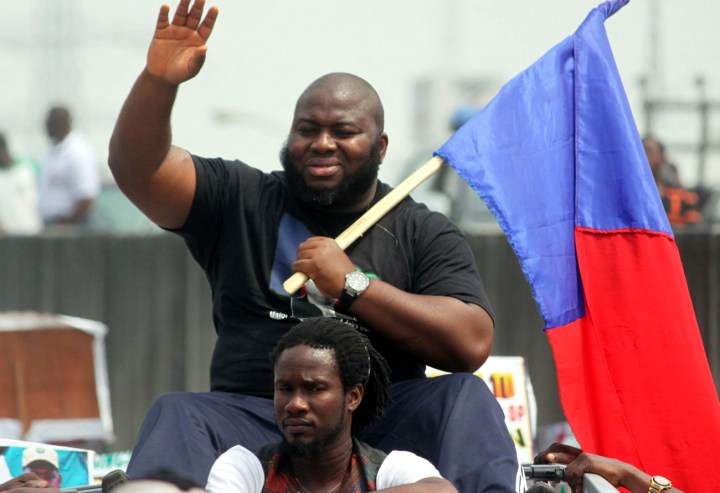A frantic week in Nigeria saw the trade unions face down the government and take to the streets. Their nationwide strike cost Nigeria billions in lost revenue and forced a hefty concession. By SIMON ALLISON.
It’s hard to know how Nigeria’s President Goodluck Jonathan feels about the latest developments in his country. His big, bold gamble to scrap fuel subsidies has failed with a popular revolt forcing him into moderating the impact. Instead of the fuel price doubling, it will increase by only 50% – still a big jump for the average consumer. Jonathan will have been unsettled by the protests; a clear indication that his government commands an ever-dwindling reservoir of trust among its citizenry.
But the big winners in all of this were a group of political actors that has gone somewhat out of fashion in recent years. The trade union movement is not what it used to be. In very few countries has it not been co-opted into political party structures, or been weakened so comprehensively as to be almost meaningless in the political arena. This is not the case in Nigeria, where trade unions remain big and bold and a little bit scary. In South Africa Cosatu is still a force to be reckoned with, although it will be looking at its colleagues up north and wondering whether Cosatu could achieve something similar here, if and when the situation demands it.
In Nigeria only hours after the subsidy removal came into force, on the first business day of 2012, the unions, led by the Nigeria Labour Conference, called for nationwide strikes and protests. Obviously, their call fell on willing ears and few Nigerians had anything good to say about the increased petrol prices. After a few days of organisation, the strikes and the protests began. It is telling that these weren’t under the auspices of some civil society body or NGO, but under union leadership and it was with the unions that Jonathan was forced to negotiate. Nothing flew in or out of Lagos airport and ports were closed. Streets were either filled with demonstrators or empty as people stopped working.
Nigerian central bank governor Lamido Sanusi estimates the strikes cost more than $600-million a day over the four days to make a total economic cost of $2.4-billion. To put this in perspective, the amount of money the government was hoping to save by scrapping fuel subsidies entirely was around $7.4-billion.
On Sunday, Jonathan made two key concessions – firstly reinstating a partial subsidy that will keep prices at the newly announced level of 97 Naira a litre (R4.70). This is modest price compared to the unsubsidised price of 144 Naira (R7), but still a significant increase on the previous subsidised price of 65 Naira (R3.10). He also agreed to launch investigations into misuse of the previous subsidy. Part of the government’s rationale for scrapping the subsidy was that much of it ended up lining the pockets of a few officials and businessmen who had formed an illicit petrol cartel and these people will now be investigated. In return for these concessions, the unions agreed – only after making Jonathan wait until Monday afternoon – to suspend the strike.
Although Jonathan would have liked to claim credit for this breakthrough – and some is certainly due to him for a relatively swift response to the crisis, although he should perhaps have done a better job in seeing it coming – ultimately it’s the unions that will be happier. “In the past eight days through strikes, mass rallies, shutdown, debates and street protests, Nigerians demonstrated clearly that they cannot be taken for granted and that sovereignty belongs to them,” said Abdulwahed Omar, president of the Nigeria Labour Congress. Implied in this is that, while sovereignty belongs to the Nigeria people, their de facto representatives are the trade unions. On their performance in the last week, it’s hard to argue with this analysis. DM

Read more:
- Nigeria: truce in fuel price dispute in the Financial Times;
- Nigeria unions suspend strikes after fuel cut on Reuters Afric.
Photo: Asari Dokubo, leader of the Niger Delta People Volunteers Force, waves during a march in support of Nigeria’s President Goodluck Jonathan on fuel subsidies removal in the oil hub city of Port Hacourt, January 13, 2012. Nigerian unions suspended strikes and protests over rising petrol prices for the weekend on Friday while talks take place between union leaders and government, but warned of more industrial action if there was no resolution. REUTERS/Austine Ekeinde



















 Become an Insider
Become an Insider